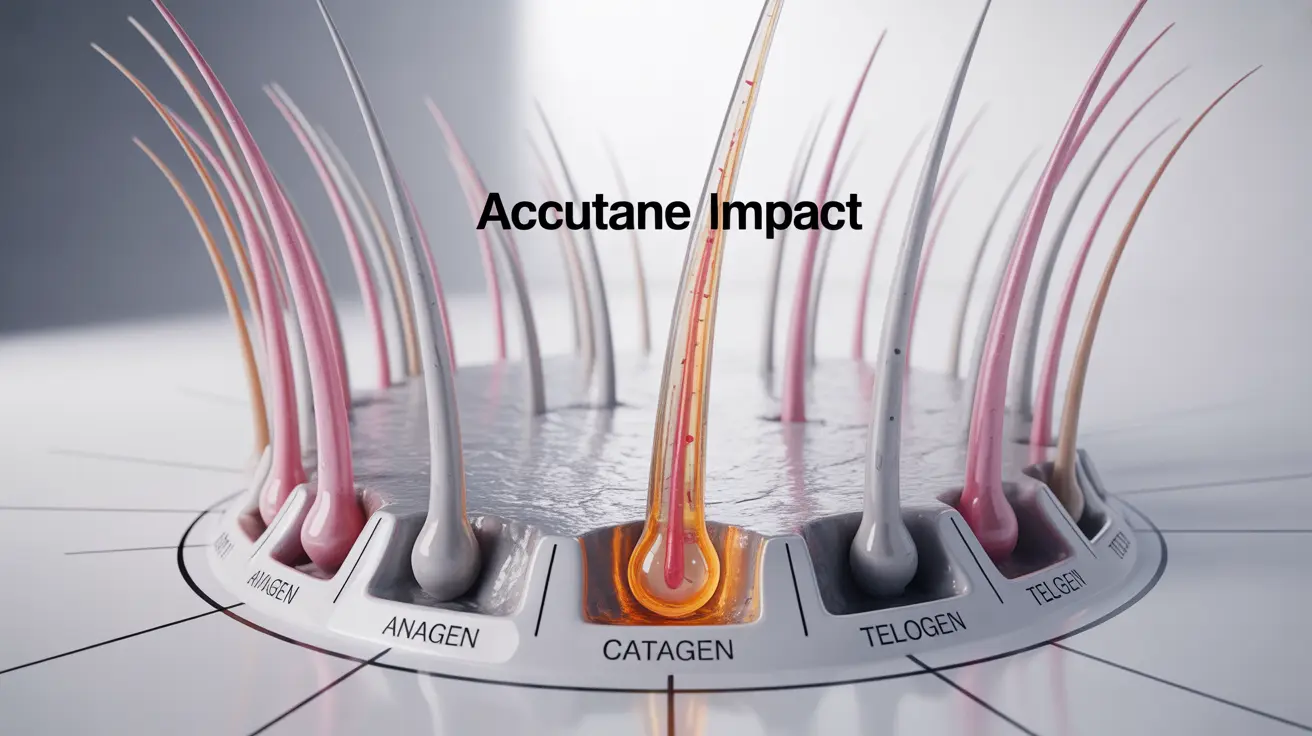If you're considering Accutane (isotretinoin) treatment for severe acne, you may have concerns about potential side effects, including hair loss. While Accutane is highly effective for treating stubborn acne, understanding its relationship with hair health is crucial for making informed decisions about your treatment.
This comprehensive guide explores the connection between Accutane and hair loss, helping you understand the risks, mechanisms, and management strategies while using this medication.
How Common is Hair Loss with Accutane?
Hair loss during Accutane treatment occurs in approximately 10% of patients. This side effect, while noteworthy, is generally considered temporary and typically resolves after completing the treatment course. The likelihood of experiencing hair loss can vary depending on individual factors, including dosage, treatment duration, and personal sensitivity to the medication.
The Science Behind Accutane-Related Hair Loss
Accutane works by dramatically reducing oil production in the skin and hair follicles. This mechanism, while effective for treating acne, can impact your hair's natural growth cycle in several ways:
Impact on Hair Growth Cycle
The medication can force more hair follicles into the telogen (resting) phase, leading to increased shedding. This process, known as telogen effluvium, is typically temporary and reversible. Additionally, the reduction in natural oils can make existing hair more brittle and prone to breakage.
Effects on Scalp Health
Accutane can cause significant dryness of the scalp, potentially contributing to hair thinning and increased shedding. This dryness may also lead to scalp irritation and inflammation, which can temporarily affect hair growth.
Managing Hair Health During Accutane Treatment
While using Accutane, several strategies can help minimize potential hair loss and maintain overall hair health:
- Be gentle with your hair (avoid harsh styling and heat treatments)
- Use sulfate-free, moisturizing shampoos
- Consider using a leave-in conditioner
- Stay well-hydrated and maintain a balanced diet
- Avoid chemical treatments during your course of Accutane
Recovery and Long-Term Outlook
The good news is that hair loss associated with Accutane is typically temporary. Most patients see their hair return to normal within 3-6 months after completing treatment. However, the recovery process can vary among individuals, and maintaining proper hair care during this period is essential.
Frequently Asked Questions
Does Accutane commonly cause hair loss and how likely is it to happen?
Hair loss occurs in about 10% of Accutane users. While it's a recognized side effect, it's not experienced by the majority of patients. The risk varies based on individual factors and dosage levels.
How does Accutane lead to hair thinning or shedding during treatment?
Accutane can trigger temporary hair loss by pushing more hair follicles into the resting phase and reducing natural oil production. This can lead to both increased shedding and potential breakage due to dryness.
Is hair loss from Accutane permanent or will my hair grow back after stopping the medication?
Hair loss from Accutane is typically temporary. Most patients experience hair regrowth within 3-6 months after completing their treatment course. Permanent hair loss is extremely rare.
Can taking a lower dose of Accutane reduce the risk of hair loss?
Lower doses may reduce the risk or severity of hair loss, but this should be discussed with your dermatologist. The optimal dose needs to balance effective acne treatment with minimizing side effects.
What steps can I take to prevent or manage hair loss while using Accutane?
You can minimize hair loss by using gentle hair care products, avoiding harsh styling practices, maintaining good nutrition, and staying hydrated. Your dermatologist may also recommend specific hair care products or supplements to support hair health during treatment.




